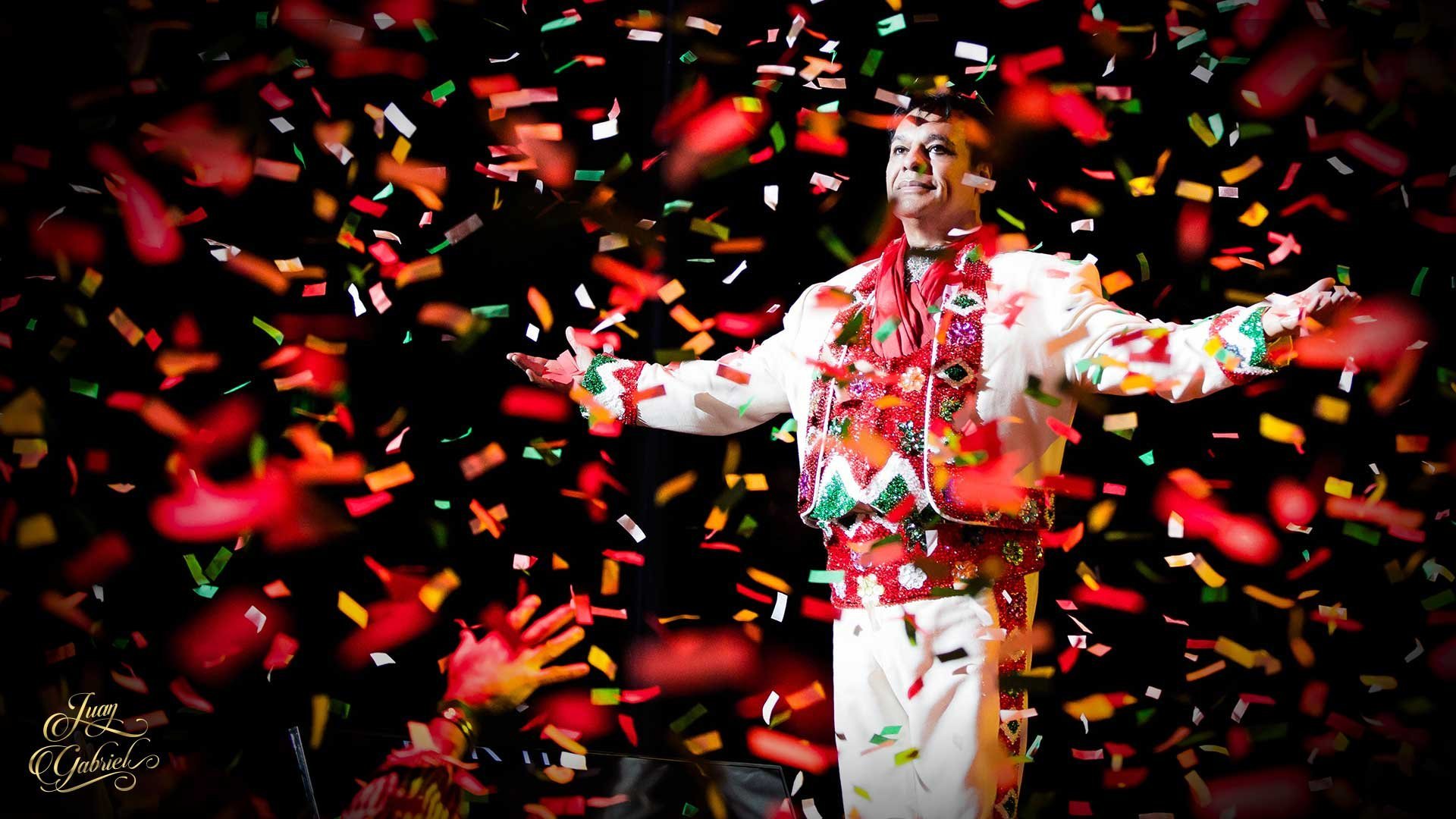
Juan Gabriel: A Mosaic of Identities
By Josh Inocéncio
For 45 years, Mexican superstar Juan Gabriel, also known as “El Divo de Juárez” and “JuanGa,” electrified listeners across Latin America with his internationally renowned discography, including “Querida” and “Esta Noche Voy a Verla.” Additionally, Gabriel befuddled, and inspired, his audiences with his queer and flamboyant concert performances. In the wake of his unexpected death in California during a music tour last week, The Huffington Post unearthed a television interview from the early 2000s where a Univision reporter asked Gabriel if he was gay.
“They say that what you can see you don’t ask, son,” Gabriel responded, sidestepping an upfront answer but creating a space for his queer identity to flourish, even if he didn’t give it a name.
But long before this exchange with the inquisitive reporter, Gabriel was influencing Latina/o youth—queer and non-queer, as well as Mexican and non-Mexican—with his lyrical talent and his “feminine” performances.
“I remember thinking how inspiring it was that someone who was that overtly homosexual was on such a pedestal in the Latinx community,” said Luis AlvarezShacht, who grew up in Hialeah, Florida. “My dad used to sing his songs when he got drunk, and would even impersonate him at times. While it was probably more to mock, he was still being spoken of and sung at gatherings.”
Many memories of Gabriel are concentrated in the home, as Latina/o parents often passed on their musical tastes to their children while simply going about their daily routines.
“Honestly, I would say that Juan Gabriel’s music was the soundtrack to my childhood,” says Carla Vasquez, another longtime listener. “His music was so present at family events, from big milestones like quinces to casual things like cleanup days at home to hanging out in the back yard with a bottle of tequila. My mom would always play JuanGa when we had to do a thorough cleaning of the house. It was super fun to have his grand, emotional music playing while we were sweeping or wiping down furniture. Because of this, I strongly associate his music with my mom.”
And like AlvarezShacht, Vasquez isn’t Mexican—testifying to Gabriel’s international appeal.
“My parents are from Central America,” says Vasquez. “I think the fact that even though they were not Mexican and still loved Juan Gabriel’s music is a testament to his influence on Spanish-language music.”
But even though Gabriel wasn’t out of the closet publicly, his music deeply affected listeners who would later identify as gay or queer.
“As I sang every lyric, I was imagining a boy singing them to or about me, and not to a girl,” remembers Gumaro Armando Silva, a Houston native and lifelong fan of Gabriel’s music.
However, even as Gabriel inspired many queer listeners with performances that defied traditional notions of Mexican masculinity, his status as an LGBT icon is contested due to his continued silence about his own sexuality. While Silva admits that Gabriel profoundly influenced his upbringing, he doesn’t consider him an “LGBT icon.”
“Knowing that this very influential man was most likely gay, yet still would not come out, made me question my reverence for him,” says Silva. “Here he was, respected not only in Mexico and the U.S. but across the globe, with a platform he could use to boost moral for the Latino LGBT community. Yet, he did nothing.”
Many popular singers with huge followings have felt pressure to endorse particular causes and be upfront about their identities, such as Prince or Frank Ocean. And some performers, like Beyoncé, have answered the call to use their fame to promote their cultural identities and speak in favor of certain movements.
Still, as the Los Angeles Times notes, “Although Gabriel never publicly claimed the gay community, that community certainly claimed him, with his romantic Spanish-language ballads belted late into the night in drag bars on both sides of the border.”
There are many reasons why Gabriel may have concealed his identity, from entrenched cultural conservatism in Mexico to a fear of jeopardizing his followers. Yet Gabriel, despite never publicly admitting he was gay, lived a queer existence challenging traditional family norms by having four children with his best friend, Laura Salas, via artificial insemination.
But regardless of whether or not he’s an LGBT icon, his listeners palpably reacted to his death.
“I never knew that someone’s death—especially someone that I did not personally know—could affect me so deeply,” says Silva. “Many thoughts rushed to my mind, from my young days in my parents’ living room to my college days having boo-hoo sessions with my buddy because we were so homesick. We [were college students at SMU in Dallas], and in those days one could count the brown people seen daily on one hand, so our JuanGa moments were intense and always brought us a sense of home.”










